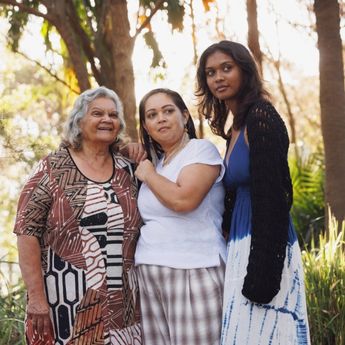By continuing to use our site, you consent to the processing of cookies, user data (location information, type and version of the OS, the type and version of the browser, the type of device and the resolution of its screen, the source of where the user came from, from which site or for what advertisement, language OS and Browser, which pages are opened and to which buttons the user presses, ip-address) for the purpose of site functioning, retargeting and statistical surveys and reviews. If you do not want your data to be processed, please leave the site.
The Voice of People With Breast Cancer
Education
Our Voices Blog
Category : Knowledge
What You Wanted to Know: Our Most-Read Blogs of 2025
From timely knowledge and practical guidance to personal perspectives and experiences, these posts sparked conversation, answered questions that were important to you, and reflected which topics our community was most interested in reading about over the past year. Here is a countdown of your favorite blogs from 2025.
Before You Ask AI About Your Health, Read This
Over the past year, something important has shifted in how people look for health information. More patients are turning to artificial intelligence (AI) tools like ChatGPT, not to replace their doctors, but to fill the long stretches of uncertainty between appointments.
Busting Breast Cancer Myths: Breast Cancer Only Affects White Women
It would be easy to assume that breast cancer is a disease that largely affects white women. Historically, Western research in the sciences and medical fields has focused on white men and women; a widespread and deeply rooted effect of colonialism. For example, two commonly used indicators for identifying breast cancer risk, body mass index (BMI) and breast density, are largely based on white populations and may not be as accurate for Black and Asian women.
Busting Breast Cancer Myths: You Can’t Get Breast Cancer Without a Family History
Having a family history of breast cancer could mean two different things. About 5% to 10% of breast cancer cases are passed down from parent to child. Sometimes, several people in a family may have breast or other types of cancer. But even when no inherited or familial connection is found, breast cancer can still happen unexpectedly.
Busting Breast Cancer Myths: Younger People Don’t Get Breast Cancer
If you are someone under the age of 50, there are a lot of important life events that you can imagine in your future. Getting diagnosed with breast cancer is most likely not on that list of events, and for many young people, especially women, it never will be. However, there has been a growing number of younger women over the past few decades who are developing breast cancer, and researchers are trying to determine why.
Busting Breast Cancer Myths: Men Don’t Get Breast Cancer
When most people think of someone with breast cancer, they think about women. Many are surprised to find out that men can also get breast cancer. Personal stories from patients on websites show how common this myth is, and many men initially express disbelief and shock at being diagnosed with a “woman’s disease”.
Making Sense of Genetic Testing in Breast Cancer - Part 2: What to Expect and How to Access Testing
In Part 1, we looked at what genetic testing is and how it helps us understand breast cancer risk. Now let’s turn to the practical side: what to consider before testing, the possible results, how to get tested, and the role of genetic counsellors.
Making Sense of Genetic Testing in Breast Cancer – Part 1: Understanding the Basics
Genetic testing has become an important tool in understanding breast cancer risk. Whether you’ve heard about BRCA1 and BRCA2 or are just beginning to learn about hereditary cancer, knowing the basics can help you and your family make informed choices. In this first part, we’ll explore what genetic testing is, how it works, and why it matters for breast cancer.
More Than Just a Lump
A lump is one of the most discussed symptoms of breast cancer. However, a lump, and the other well-known signs of breast cancer, are not always the first thing you may notice. You may not even realize what you’re looking at could be a symptom of breast cancer.
Navigating an Intimate Relationship: Avoiding a Communication Breakdown
For most couples, breast cancer is completely new territory, so it’s important for both of you to share how you’re feeling and coping. You can’t expect your partner to automatically understand what you’re going through, and the same goes the other way around. They might not know how to best support you, which is why being open about your emotions, needs, and worries can help you stay connected.













